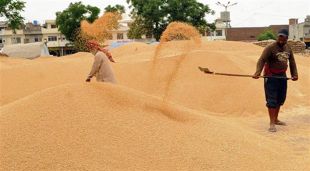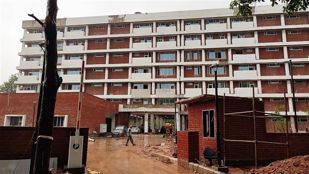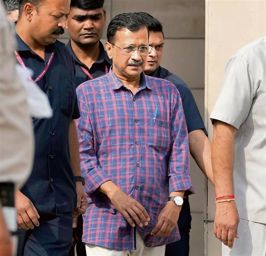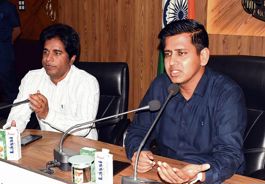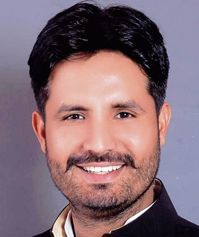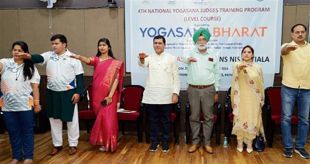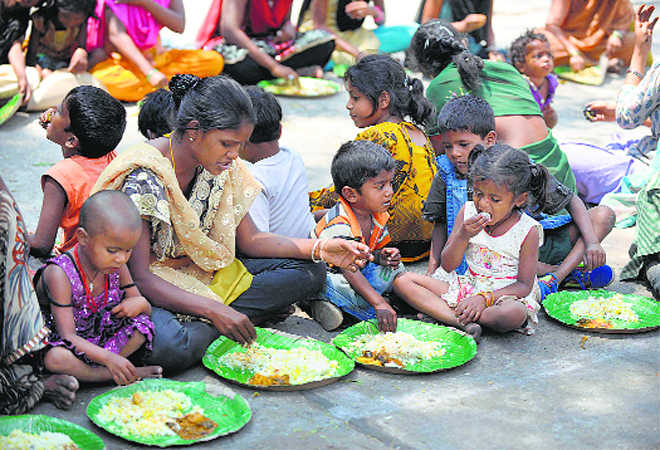
Can’t Go Hungry: India will have to ensure its food security is not jeopardised.
Sushma Ramachandran
THE forthcoming ministerial meeting of the World Trade Organisation in Buenos Aires is being held in the backdrop of a vastly different global scenario to that when the institution was first set up in 1995. The WTO has ceased to become the most important player on the global trade trade scene. Regional trade pacts have become the order of the day. It is easier and less time consuming to enter into such arrangements as the large multilateral organisation gets literally tied up in knots over every issue. The developed world and emerging economies have been battling over the years over a range of issues, some of which manage to get resolved, but many of which are not able to reach any finality. As a result, attention is now being focused on other trade agreements like the controversial Trans-Pacific Partnership (TPP). Though now the TPP is being decried by its prime mover, the US, it is one among the numerous new trade pacts being hammered out all over the world. It is the glacial pace of decision making at the WTO that has forced most countries to look for trade arrangements that will give quicker national advantages.
As far as India is concerned, the WTO remains a crucial entity even as it continues to negotiate free trade pacts with other countries and groupings. It remains significant as it continues to be the premier dispute settlement organisation for trade-related issues. Besides, it is the only one where agreements become valid on a global basis, mainly owing to the large number of countries that are members. The ministerial meeting in Argentina assumes importance since there are a large number of ongoing issues that have yet to be resolved which are of critical concern to this country. The most important of these is on food security. This was resolved to India’s satisfaction at the Bali ministerial meeting, but it was only a partial conclusion. The “peace clause” as it was termed ensures that no action will be taken against India or other developing countries in case the subsidies on their food procurement programmes breach the ceiling of 10 per cent of the value of food production. This is an interim arrangement till a final solution is found, but India has been insisting on a permanent formula. Media reports now indicate that it may no longer do so, but that would be a mistake as already developing countries are trying to insert tougher conditions into the peace clause. These include curbs on export of foodgrains.
At the same time, these countries are retaining the right to continue providing huge subsidies on their own food and dairy products. It has to be said that as far as the WTO is concerned, there has been consistency in the way in which both the NDA and the UPA governments have tackled the delicate multilateral issues that could impact the 400 million farmers in this country. Commerce ministers from Murasoli Maran to Arun Jaitley to Kamal Nath and lately Nirmala Sitharaman have sought to defend the interests of farmers and ensure their livelihood is protected at this forum. The challenge is now before Commerce Minister Suresh Prabhu to follow in their footsteps to ensure that the US and the European Union, along with their allies, do not succeed in ensuring that India’s food procurement stocks are curtailed and the country’s food security is put in peril.
The other major concern is the drive to include new items on the work programme. These include electronic commerce, investment facilitation, and even creating new disciplines for small and medium enterprises. On the issue of e-commerce, India is wary owing to its experience in the area of electronic hardware where reduced tariffs have affected domestic industry. On investment facilitation, there are fears that it will end up allowing a multilateral agency to take decisions on foreign investment norms that need to be decided by the sovereign government of the day. India has rightly pointed out in respect of most of these new items that topics already on the table should be concluded rather than moving on to new items.
One of the areas that Mr Prabhu will have to persist in highlighting is services, especially the movement of skilled personnel from country to country. This is one of India’s strengths so no wonder the developed world is lukewarm to any movement in negotiations. It is one of the existing items on the Doha round of WTO negotiations — the Doha Development Agenda — that was launched in 2001. It is on this agenda that the battle lines have been drawn between emerging economies and the developed world, with the latter seeking to include new areas without reaching a conclusion on earlier ones.
While all these issues have to be dealt with, it would be a good idea for Mr Prabhu to take a more long-term perspective on the WTO. India should ideally become a leader of a ginger group to reform the organisation so that it can become more vibrant and more in tune with members’ genuine interests. Owing to the need for consensus in all major decisions, it has become difficult for the institution to move forward to take viable decisions related to world trade. Instead, it has become a halting one-step forward, two steps backward kind of dance for the world body. Ideally it should reflect the interests of the majority who are the emerging and developing economies, but the developed world has ensured that this is not the case. In fact, it is the stalemate that has taken place between the two sides that makes negotiations here extremely long-winded and inconclusive.
Mr Prabhu thus has a tough job ahead. The short-term task is to ensure that the Buenos Aires ministerial meeting does not harm India’s interests in key areas of trade and economy. The long-term job, however, is to try and mobilise support to ensure that the WTO becomes a more equitable and fair institution where the interests of the poor are given primacy rather than providing support only to the rich all over the world.





















